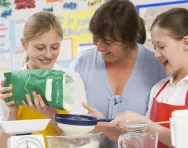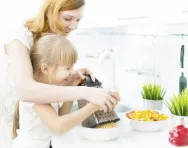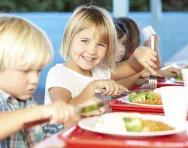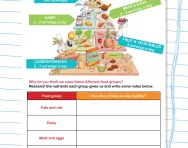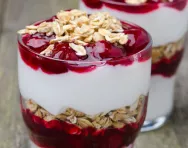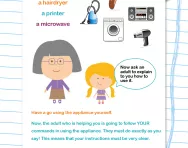Important update from TheSchoolRun
For the past 13 years, TheSchoolRun has been run by a small team of mums working from home, dedicated to providing quality educational resources to primary school parents. Unfortunately, rising supplier costs and falling revenue have made it impossible for us to continue operating, and we’ve had to make the difficult decision to close. The good news: We’ve arranged for another educational provider to take over many of our resources. These will be hosted on a new portal, where the content will be updated and expanded to support your child’s learning.
What this means for subscribers:
- Your subscription is still active, and for now, you can keep using the website as normal — just log in with your usual details to access all our articles and resources*.
- In a few months, all resources will move to the new portal. You’ll continue to have access there until your subscription ends. We’ll send you full details nearer the time.
- As a thank you for your support, we’ll also be sending you 16 primary school eBooks (worth £108.84) to download and keep.
A few changes to be aware of:
- The Learning Journey weekly email has ended, but your child’s plan will still be updated on your dashboard each Monday. Just log in to see the recommended worksheets.
- The 11+ weekly emails have now ended. We sent you all the remaining emails in the series at the end of March — please check your inbox (and spam folder) if you haven’t seen them. You can also follow the full programme here: 11+ Learning Journey.
If you have any questions, please contact us at [email protected]. Thank you for being part of our journey it’s been a privilege to support your family’s learning.
*If you need to reset your password, it will still work as usual. Please check your spam folder if the reset email doesn’t appear in your inbox.
6 great things your child learns in the kitchen
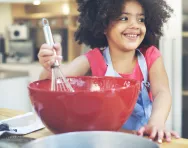
Cooking with your child can sometimes seem like more hassle than it’s worth. It’s messy, it takes three times longer than doing it yourself, and the results aren’t always even edible. But while it’s not always easy, getting your kids involved in the kitchen can give them a whole set of skills that support what they’re learning at school.
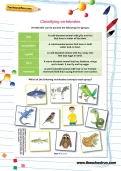

Download fantastic science resources today!
- Experiments And Science Fun pack
- Science Learning Programme for each school year
- All the instructions, questions and information you need
We asked Nadiya Hussain, winner of The Great British Bake-Off 2015 and author of the new children’s story/cookbook Nadiya’s Bake me a Story (£14.99, Hodder), to share the benefits of cooking and baking with your child.
1. Confidence
‘Children often look at the kitchen as a grown-up place that’s full of scary things like sharp knives and hot ovens,’ says Nadiya. ‘But letting them help you shows them how to be safe in the kitchen, and takes away the fear element.’
Okay, so we’re not suggesting you leave your child to their own devices with the biggest carving knife you own, but with supervision, even small children can master basic skills like chopping, mixing and rolling, and that improves their confidence, inside the kitchen and elsewhere in life.
Try this: Start by letting your child use ‘safe’ kitchen tools. They could help you mash potatoes, stir cake mix and cut soft fruit and veg like mushrooms or bananas with a blunt knife. As they get older and gain confidence, you can introduce more complex skills and utensils.
2. Maths skills
Cooking with your child is a great way to give them an at-home maths lesson without them even realising. ‘Weighing, measuring and working out cooking times are really important when you’re baking, and they all help them practise their maths, with an edible treat at the end,’ Nadiya explains.
Measuring and weighing are key concepts of National Curriculum maths in Key Stages 1 and 2, and hands-on practice is one of the best ways to make sure the skills really sink in.
Try this: Younger children can practise their numbers by helping you prepare the ingredients for a meal – for example, counting out how many sausages you need to cook for the family. Older children can start to weigh, measure and pour by themselves. Give their brain an extra challenge by baking a double batch of cupcakes or pancakes and getting them to scale up the recipe to find the right amount of ingredients and cooking time.
3. Literacy skills
If your child is a reluctant reader, getting them involved in the kitchen can help their literacy skills in a less pressurised way than sitting down and making them read their school book.
‘Reading recipes shows children how to follow a set of step-by-step instructions in the right order, and there’s no need to stick to children’s cookbooks: my children will often pick up a regular recipe book without even thinking about whether it’s meant for kids,’ Nadiya says. Recipe books will also introduce new vocabulary, and talking together as you cook helps to improve their communication and literacy skills.
Try this: Take your child to the library, look through some cookbooks and borrow the ones that contain recipes they’d like to try. They could also practise writing their own instructions for a favourite recipe, or use our worksheet to write a step-by-step guide to making a sandwich.
4. Maturity and independence
Being trusted to at first help you in the kitchen, and, as they get older, start to cook and bake on their own, is a great boost to your child’s independence and maturity. ‘It teaches them things like patience, as they have to finish each stage of a recipe before they move onto the next one,’ Nadiya explains. ‘Being in the grown-up environment of the kitchen also helps them to feel more grown-up themselves.’
Try this: Let your child try to make something completely from scratch, with as little help as possible. For a Reception child, this could be as simple as a bowl of chopped fruit, while by Year 6, children are likely to be able to make a sandwich, heat a bowl of soup and even make you a cup of tea independently (hooray!).
5. Bonding time
‘Modern life is busy and we all struggle to find time to be with our kids, but we all have a kitchen and it’s the perfect place to spend time together,’ says Nadiya. ‘The inspiration for my book came from my children wanting me to read to them while I was cooking. It made me realise that if I could combine both, we could have quality time together, sharing stories and then sitting down to share what we’d cooked.’
Try this: Just the act of cooking with your child and having conversations while you’re busy is a brilliant way to bond. Nadiya’s Bake Me a Story features 15 reworked fairy tales, such as The Not-Just-Ginger Gingerbread Guy, each followed by a recipe relating to the story, so you and your child can enjoy reading and cooking together at the same time.
6. Nutritional awareness
Healthy eating and childhood obesity are hot topics, and there’s plenty of evidence to suggest that children who develop good eating habits early in life are likely to stick to them as they get older.
Cooking together is a good opportunity to talk to your child about nutrition without the emotional overtones that often come with discussions about food, weight and a healthy diet. ‘My nine-year-old loves cooking with me, whereas my six-year-old prefers baking, but they’re both learning about ingredients and how to eat well from being in the kitchen,’ Nadiya says.
Try this: Involve your child in planning a healthy, balanced meal that they’ll still enjoy eating. Use our planner to help them work out a day’s worth of healthy meals, and then the opposite: three unhealthy meals. Take the opportunity to talk about why we need foods from the different groups, and how to enjoy less healthy foods in moderation.

